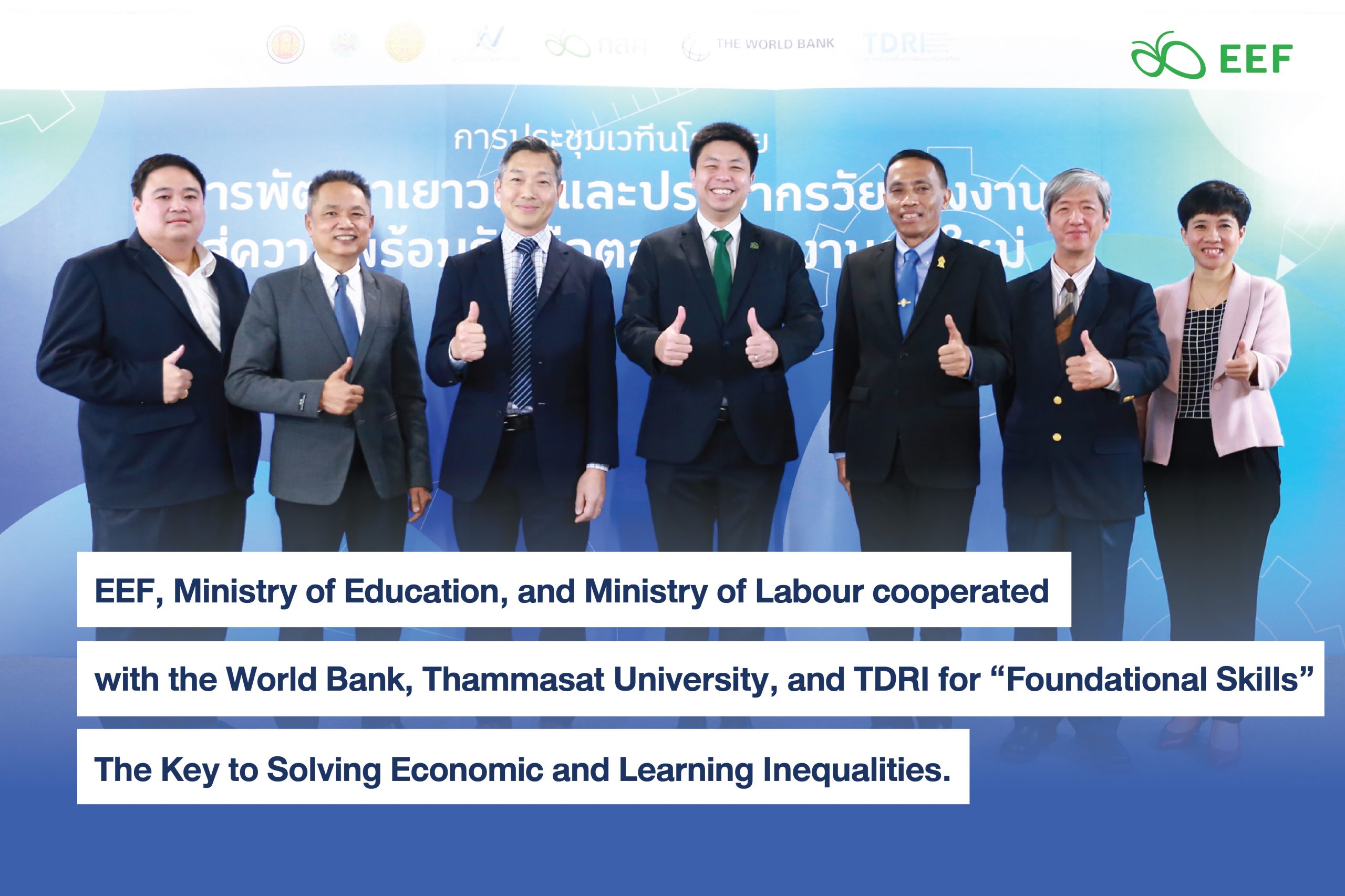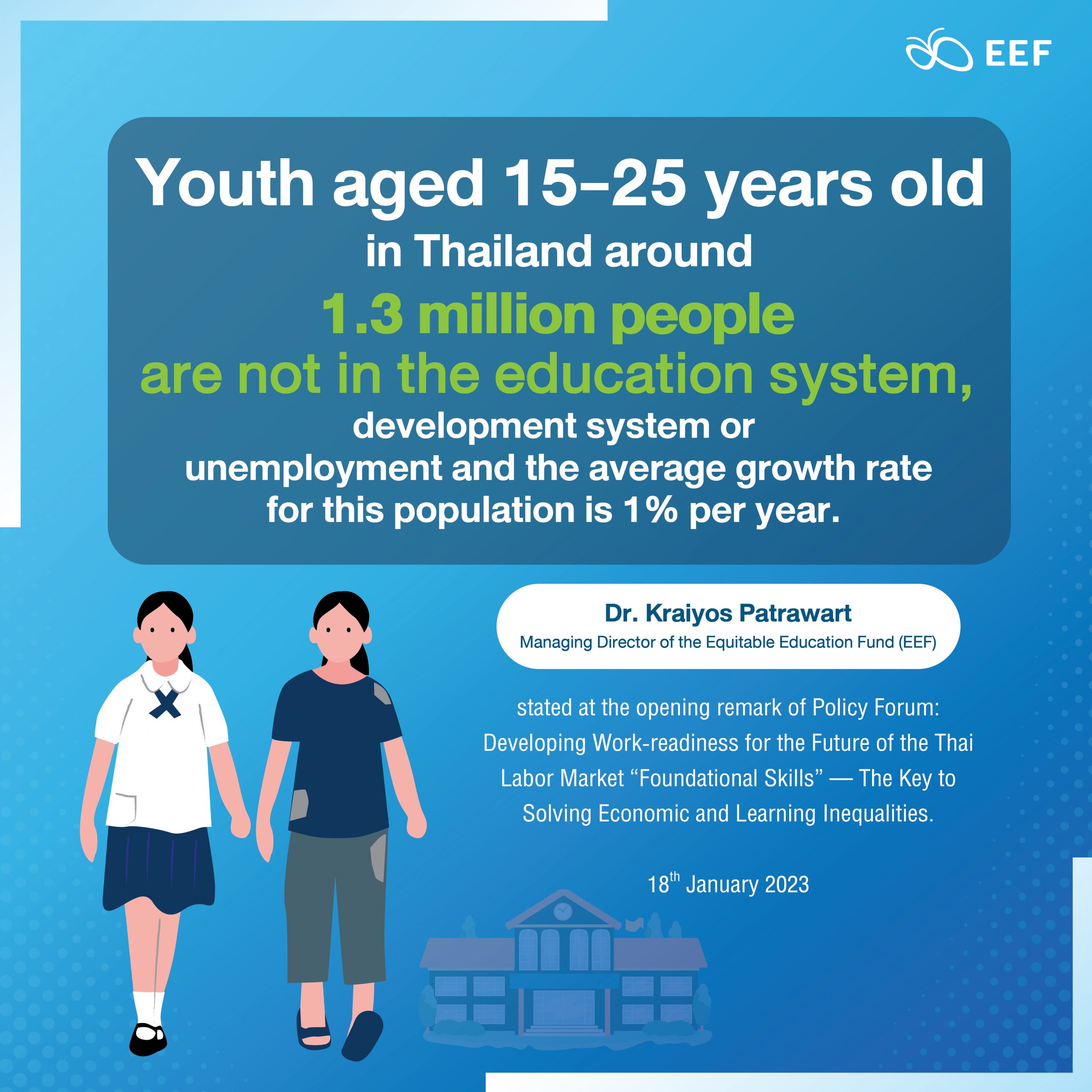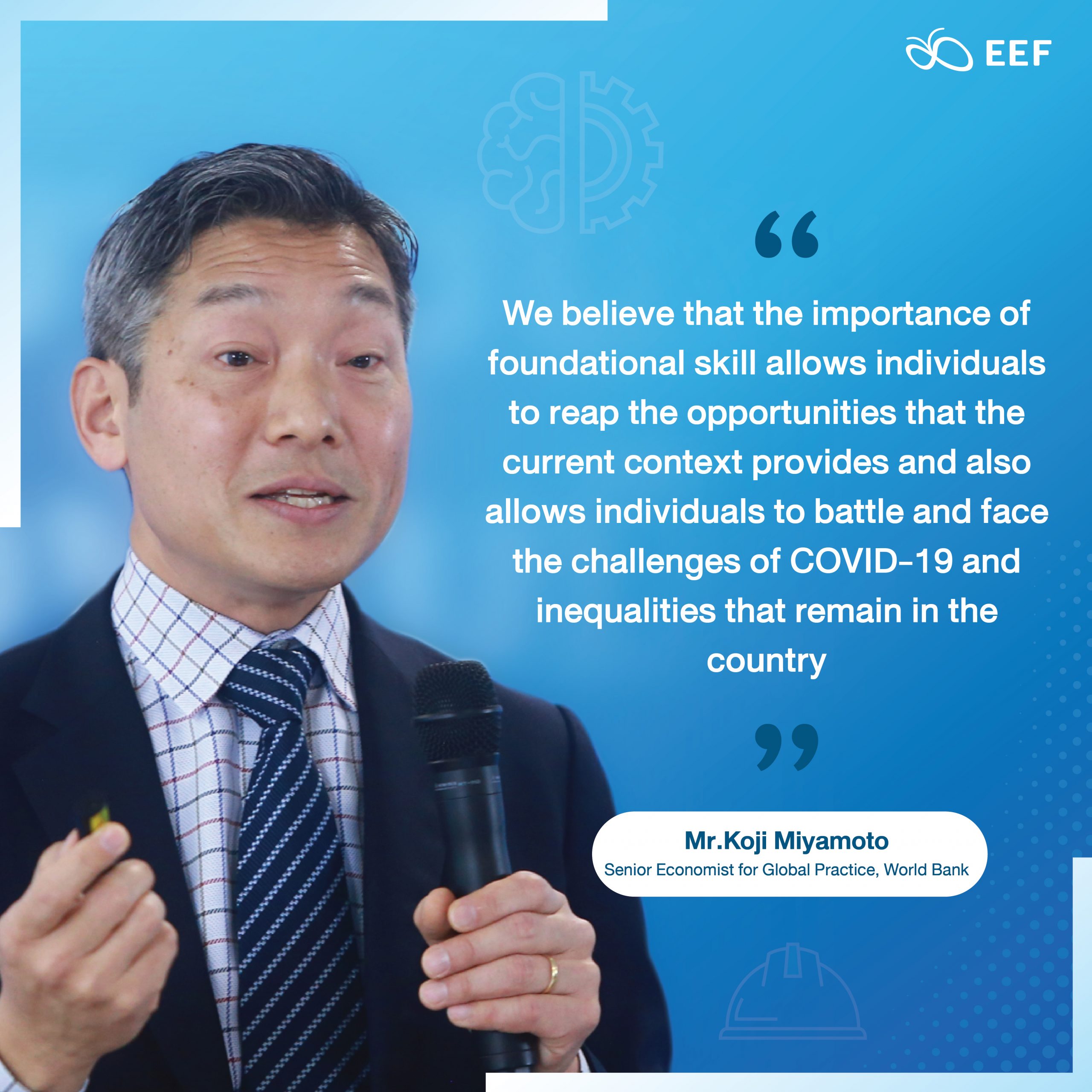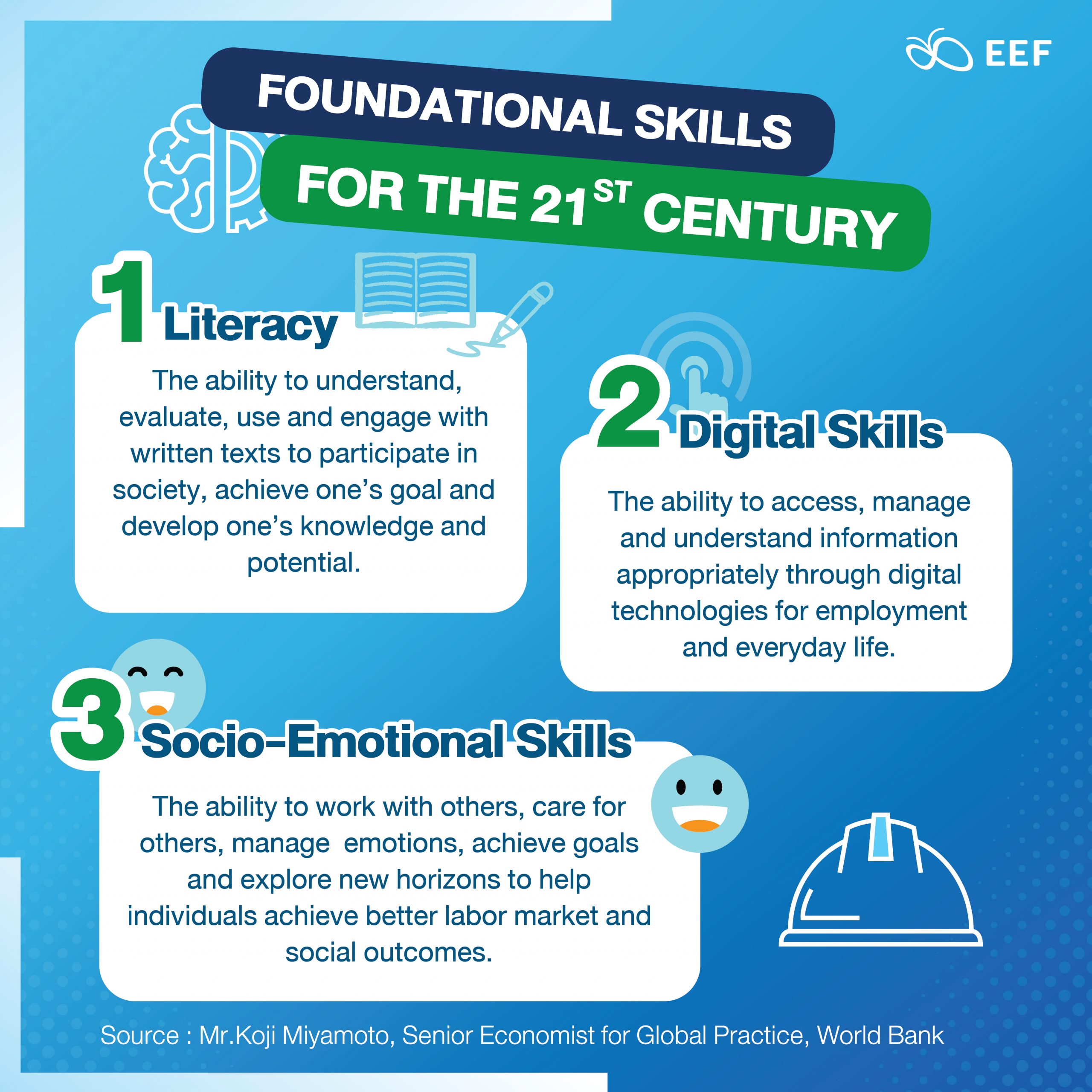
“Youth aged 15-25 years old in Thailand around 1.3 million people are outside the education system, development system, or unemployment, and the average growth rate for this population is 1% per year.” Dr. Kraiyos Patrawart, Managing Director of the Equitable Education Fund (EEF) Thailand, stated at the opening remark of Policy Forum: Developing Work-readiness for the Future of the Thai Labor Market “Foundational Skills” — The Key to Solving Economic and Learning Inequalities.
UNESCO expects if Thailand has not resolved this problem and brought these people back to the education and development systems, it will cause a very high economic damage value of 3% of GDP or 300,000 million Thai Baht.
The Equitable Education Fund (EEF) Thailand, the Ministry of Education, and the Ministry of Labour cooperated with the World Bank, Thammasat University, and TDRI to organize Policy Forum: Developing Work-readiness for the Future of the Thai Labor Market under the theme “Foundational Skills” — The Key to Solving Economic and Learning Inequalities on January 18th, 2023 at Equitable Education Fund (Thailand) for the solution on how to bring these populations back to systems to become active citizens and enter the labor market with high performance for sustainable economic growth.

Especially, Thailand will become an aged society so we cannot let anyone drop out of the development and labor market. Foundational skills are very important to help this group into the education system, improve their skills, and it can enhance their life for their life-long learning skills.
Mr.Koji Miyamoto, Senior Economist for Global Practice, World Bank explained what foundational skills are powerful foundational skills are in driving people’s lives.
He said that foundational skills are fundamental, progressive, and transferable abilities that help individuals navigate challenges and reap opportunities.

“We believe that the importance of foundational skill allows individuals to reap the opportunities that the current context provides and also allows individuals to battle and face the challenges of COVID-19 and inequalities that remain in the country,” Mr.Koji said.
Mr.Koji has divided foundational skills for the 21st century is 3 elements as follows:
- Literacy – The ability to understand, evaluate, use and engage with written texts to participate in society, achieve one’s goal, and develop one’s knowledge and potential.
- Digital Skills – The ability to access, manage and understand information appropriately through digital technologies for employment and everyday life.
- Socio-Emotional Skills – The ability to work with others, care for others, manage emotions, achieve goals and explore new horizons to help individuals achieve better labor market and social outcomes.

In addition, Mr.Koji also explained why we need foundational skills because literacy, digital skills, and socio-emotional skills have an incredible impact on diverse aspects of an individual’s life, be education outcomes, labor market outcomes, income, health outcomes, and also social outcomes as well
He also showed the study from the OECD that followed the children in Canada who test PISA Score for a long time since they are 15 years old until they were 25 years old to follow up the literacy skill along with life outcomes. OECD found that if they have higher literacy scores, they will have a chance to complete university about 50-60%.
He also showed the survey of return to literacy on earnings from full-time employees aged 35-54 in 32 countries. The study showed that if you have higher literacy scores, your salary will more up by around 18%. In addition, the result of returns to literacy and socio-emotional skills in Switzerland is to decrease depression and management behavior problems. Therefore, foundational skills impact the education system, income, and health, if you have good foundational skills, you will be a good person and not do something terrible to society.
Mr.Koji stated that if we want to increase literacy, digital, and socio-emotional skills, we must develop the whole system. In addition, the level of education must be continuity at every stage whether formal or informal education. He added, “We are living in a socio-economic context where foundational skills can play a tremendously important role in reaping opportunities and in coping with difficult situations and also are multidimensional, basic transversal and progressive abilities that children, youth and adult need.”
“We can create, develop and improve foundational skills but everyone has to work with each other and each person may adjust in a different way. So, we should think about what we can do in the Thai context which will be planned in the future,” Mr.Koji messaged.
Source:
Video: Forum Record
Pictures: https://en.eef.or.th/media/
Project: Adult Skills Assessment in Thailand

